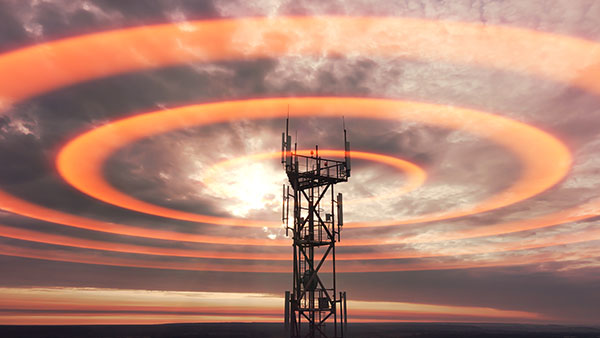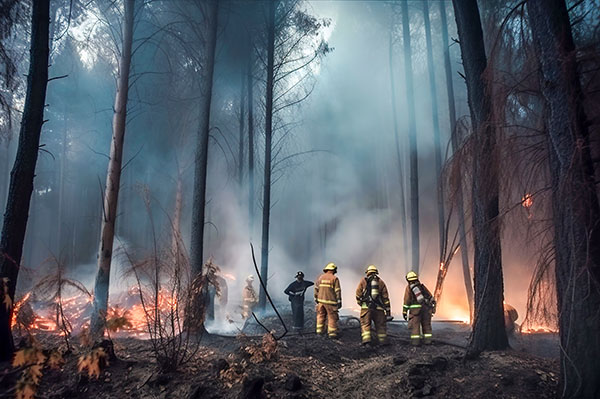SUPPRESSED: Since 1993, dozens of government agencies and organizations have warned against, or called for ban on, wireless technology
09/15/2023 / By Ethan Huff

One of the first entities to ever speak out against wireless technology and the dangers it poses to human health was the U.S. Environmental Protection Agency (EPA) back on Nov. 9, 1993. At the time, the EPA called out the Federal Communications Commission (FCC) for imposing “seriously flawed” exposure standards that put public health at risk.
Just one day later on Nov. 10, 1993, the U.S. Food and Drug Administration (FDA) entered a similar official comment to the FCC in a docket pertaining to the FCC’s guidelines for evaluation of electromagnetic effects of radio frequency radiation.
“FCC rules do not address the issue of long-term, chronic exposure to RF fields,” the FDA wrote in the docket, echoing the EPA’s warnings.
It turns out that there are many different federal agencies and other authoritative entities that have spoken out against wireless technology over the years, only to be ignored by those with final decision-making power.
That same year in 1993, the National Institute for Occupational Safety and Health (NIOSH) also called out the FCC for imposing inadequate standards “based on only one dominant mechanism – adverse health effects caused by body heating.
Again and again since that time, the FCC and other similar regulatory agencies abroad have been getting bombarded with studies and other evidence showing that wireless technology is dangerous – and still nothing is being done about it.
(Related: Did you know that the symptoms of 5G exposure are disturbingly similar to the symptoms associated with “COVID?”)

Wireless radiation damages children, birds, and really EVERYONE
The Cellular Phone Task Force has been tracking this information for quite a while, showing that dozens upon dozens of expert organizations and government agencies have been sounding the alarm over the years about wireless technology dangers. Here are a few more prominent examples:
• In 1994, the Amateur Radio Relay League Bio-Effects Committee warned that the FCC’s standard “does not protect against non-thermal effects.”
• In 2000, the United Kingdom’s Department of Education warned that children under the age of 16 should not use a mobile phone except in an emergency.
• In 2002, the Interdisciplinary Society for Environmental Medicine, which is comprised of more than 3,000 German physicians, recommended banning all cell phone use by children, as well as all cell phones and cordless phones in preschools, schools, hospitals, nursing homes, event halls, public buildings, and vehicles.
• In 2003, the American Bird Conservancy and Forest Conservation Council filed a lawsuit against the FCC because its wireless policies were causing millions of migratory birds to become disoriented, resulting in many of them crashing into cell phone towers.
• In 2004, the International Association of Fire Fighters protested the installation of communication antennas on top of fire stations.
• In 2005, the Austrian Medical Association warned that children should not use Wi-Fi, cordless phones, or cell phones under any circumstances.
• In 2007, the European Environmental Agency, Europe’s top environmental watchdog, called for immediate and drastic action to reduce exposure to wireless radiation.
• In 2008, the National Library of France removed all Wi-Fi routers and wireless internet from the facility due to health concerns.
• Also in 2008, the Russian National Committee for Non-Ionizing Radiation Protection warned that talking on a cell phone even for a few short minutes is dangerous, especially for children, pregnant women, epileptics, and people with memory loss or sleeping disorders.
• In 2009, the U.S. Fish and Wildlife Service urged Congress to investigate the link between electromagnetic fields and “Bee Colony Collapse.”
• In 2011, the Council of Europe passed a resolution recommending that only wired internet connections be made available in schools.
• In 2016, the city of Haifa, Israel, banned all Wi-Fi in schools.
• In 2018, cell phones were banned in all primary and middle schools throughout France.
Electromagnetic radiation is doing a real number on human health. Learn more at 5Galert.com.
Sources for this article include:
Submit a correction >>
Tagged Under:
This article may contain statements that reflect the opinion of the author




















